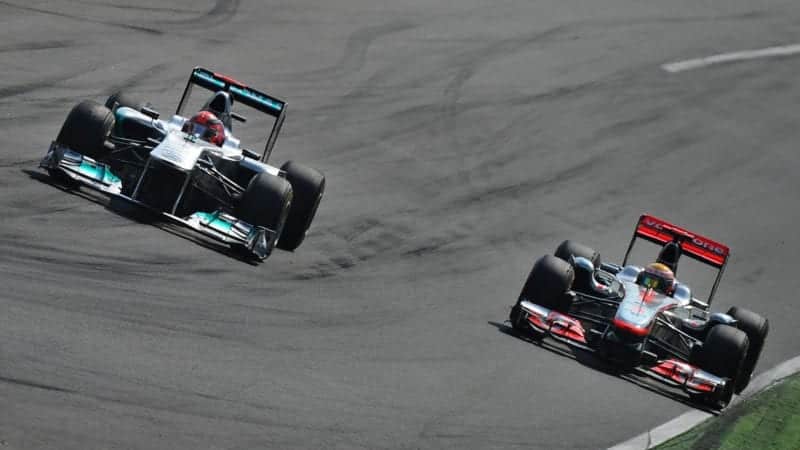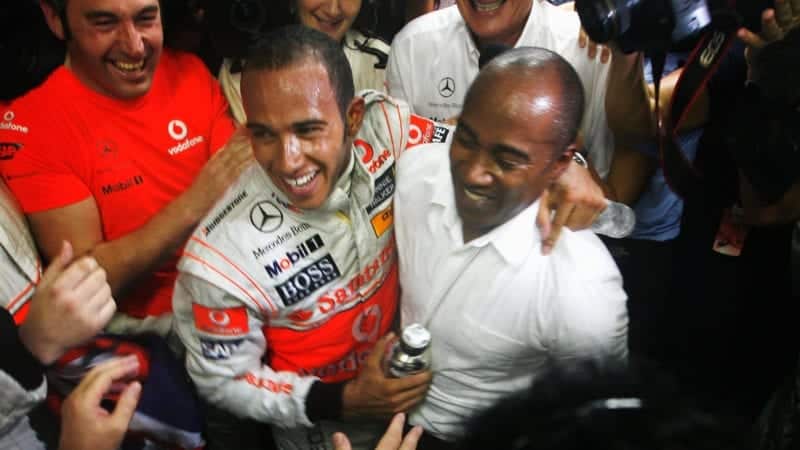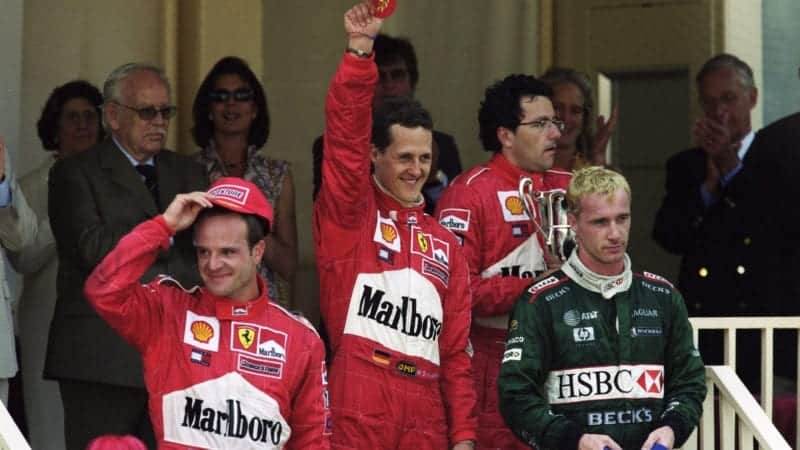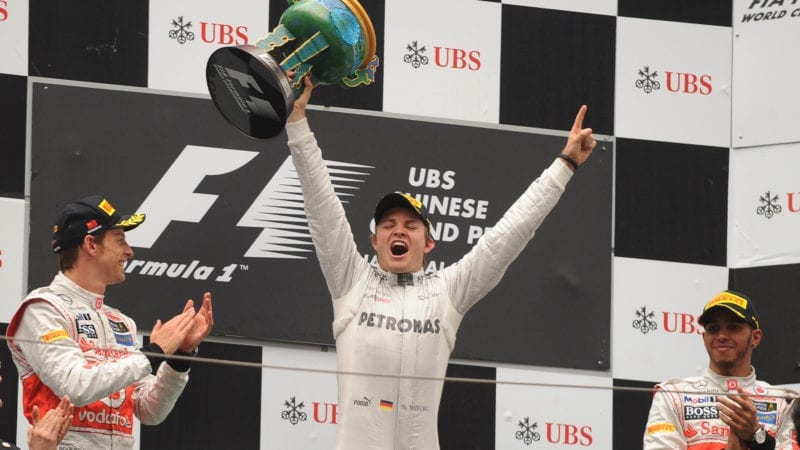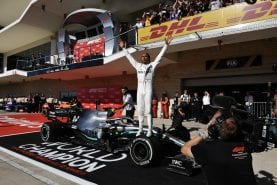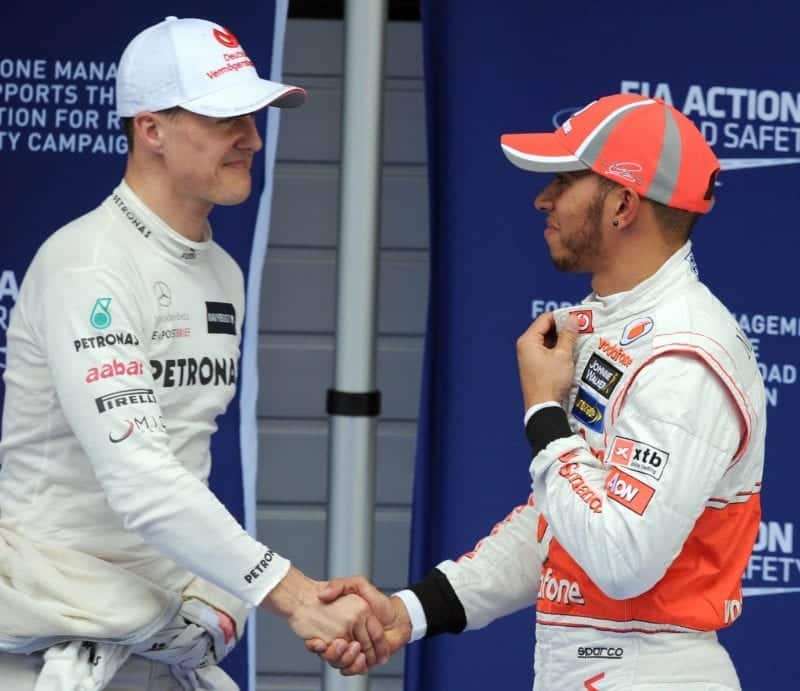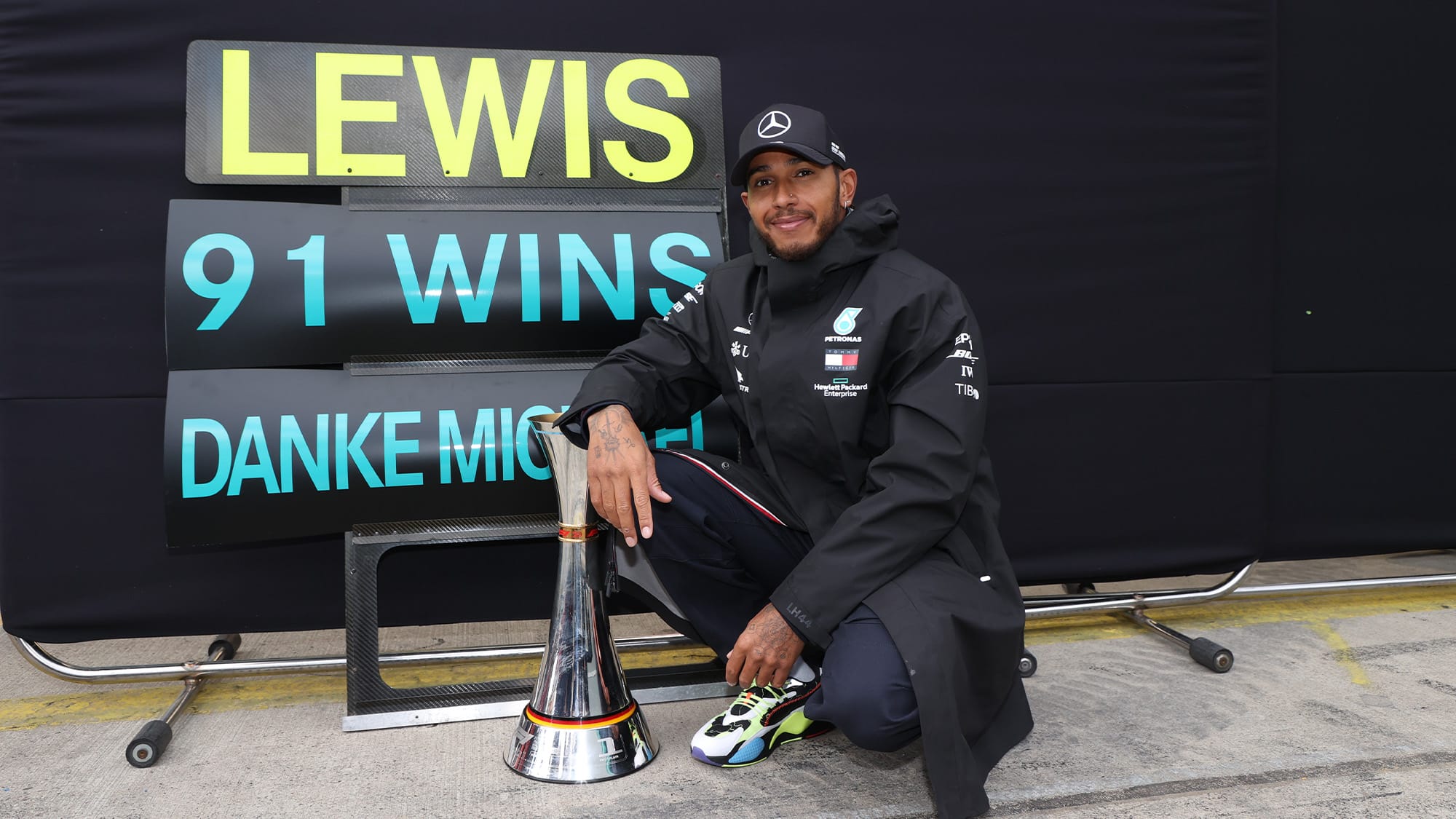Both Schumacher and Hamilton tackled five seasons with packages demonstrably second-best, or worse. They scored at least one victory in each and every one of those seasons and mined 11 from the 84 GPs (Schumacher) and 13 from the 94 GPs contained therein.
Schumacher finished a combined 21 places higher in the final standings than his various team-mates, who had not a single win between them, and scored 43.75 per cent more points. (The latter figure admittedly includes the 78 docked for his inglorious part in Jerezgate in 1997.)
Hamilton was not so obviously dominant in times of ‘hardship’. He was a combined eight places higher and just 3.35 per cent better off than his team-mates, who mustered 10 wins between them.
There are caveats: quality of team-mate; capability of ‘second- or third- rate’ car; ethos of team; and a more generous redistribution of points from 2010.
Only recently – and still yet not to the same obvious extent – has Hamilton had a team wrap itself around him, as did Benetton and Ferrari with Schumacher. And for four of those five seasons he had a past and future world champion team-mate.
Jenson Button got into Hamilton’s head in a way that Messrs Brundle, Patrese, Irvine and Barrichello could not/were not allowed to with Schumacher.
And Nico Rosberg, who scored two wins to Hamilton’s one during their first season together at Mercedes-Benz in 2013, would follow Button’s lead – albeit with rather more false bonhomie – to win the 2016 title.
